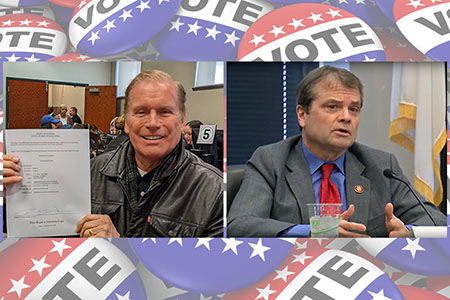
Homeowners in Chicago and Cook County are left in limbo as the county struggles to finalize the 2024 property tax bills. Initially due on August 1, the due date has been rescinded amid ongoing issues with the property tax billing system.
Sep. 16, 2025 – Illinois now officially has the distinguished honor of paying the highest property taxes in the nation. Regardless, homeowners in Chicago and Cook County are wondering if they ever will receive the second installment of their 2024 real estate tax bill. Taxpayers were supposed to pay their second tax installments on August 1, but the county hasn’t been able to calculate the final amounts and billions worth of tax bills haven’t yet been mailed. As a result, the due date for taxes has been rescinded until the county can fix the issue. Cook County administrators don’t know when the second set of bills will go out.
The contract was inked by the county in 2015 and allegedly was supposed to modernize the property tax billing system in three to five years. However, repeated mistakes have flawed the system to the point that taxpayers could not expect to get correct bills if they were mailed today. Critics say the county finds itself unable to perform the basic function of tax collection, leaving taxpayers in limbo. The Cook County Treasurer’s website features a banner indicating tax amounts have not been finalized and bills have not been mailed out. Property taxes outpace property values Data shows Illinois in 2023 had the highest property taxes in the United States, with a median statewide home value of $250,000, and an effective property tax rate of 1.83 percent of appraised value. The typical Illinois homeowner paid property taxes of $4,584 in 2023. Illinois Policy Institute research shows Cook County property tax bills have risen a whopping 78 percent since 2007, despite median property values inching up just 7.3 percent. What is even more shocking is that Cook County homeowners paid $1.9 billion more in property taxes between 2021 and 2023 than commercial property owners. With the aid of tax attorneys, owners of office buildings, big apartment towers, and hotels successfully appealed their bills and won reductions of more than $3.3 billion. When commercial property owners win appeals, the taxes still have to be paid, and the burden shifts to everyone else – mostly homeowners.
Recently, Hynes asserted that Chicago Public Schools (CPS) faces a mounting fiscal crisis because for the fourth time in six years Kaegi has failed to get tax bills out on time. However, Hynes failed to explain that mailing property tax bills is the job of Cook County Treasurer Maria Pappas, not Assessor Kaegi, who has dramatically upgraded the management of the Assessor’s office. Kaegi, a reformer, replaced the corrupt Joseph Berrios as Assessor in 2019. Critics say Berrios’ loose cannon assessment style often sidestepped fairness and focused on well-heeled insiders along with politically-connected tax appeal lawyers. Favorable valuations allegedly were handed out to wealthy downtown property owners who kept donations flowing into Berrios’ campaign coffers. Nepotism and patronage ran rampant, and ethics rules were ignored. In 2018, Kaegi ran on a pledge to overhaul Berrios’ dysfunctional office, and voters believed him. Kaegi inherited not only a deeply flawed, ethically bankrupt office, but also a dusty, decades-old data system that relied on reams of paper. When Kaegi first took office, his staff allegedly found 600 tons of paper tax appeals in storage. However, Kaegi’s two terms have been rocky. Critics say he is responsible for recent massive residential tax hikes by reducing commercial assessments. Kaegi also butted heads with the Cook County Board of Review, which is more firmly entrenched with the Democratic Machine. According to Hynes, the delay in 2024 property tax collection has caused CPS to miss a $247 million payment owed to the Chicago Teachers’ Pension Fund.
This “unforced error” began this spring when Assessor Kaegi sent his assessment data to the Illinois Department of Revenue three months late, according to Hynes. Pension costs for the financially troubled CPS are already on a steep climb, projected to grow from $645 million in fiscal year 2025 to nearly $898 million by fiscal year 2035. |
















